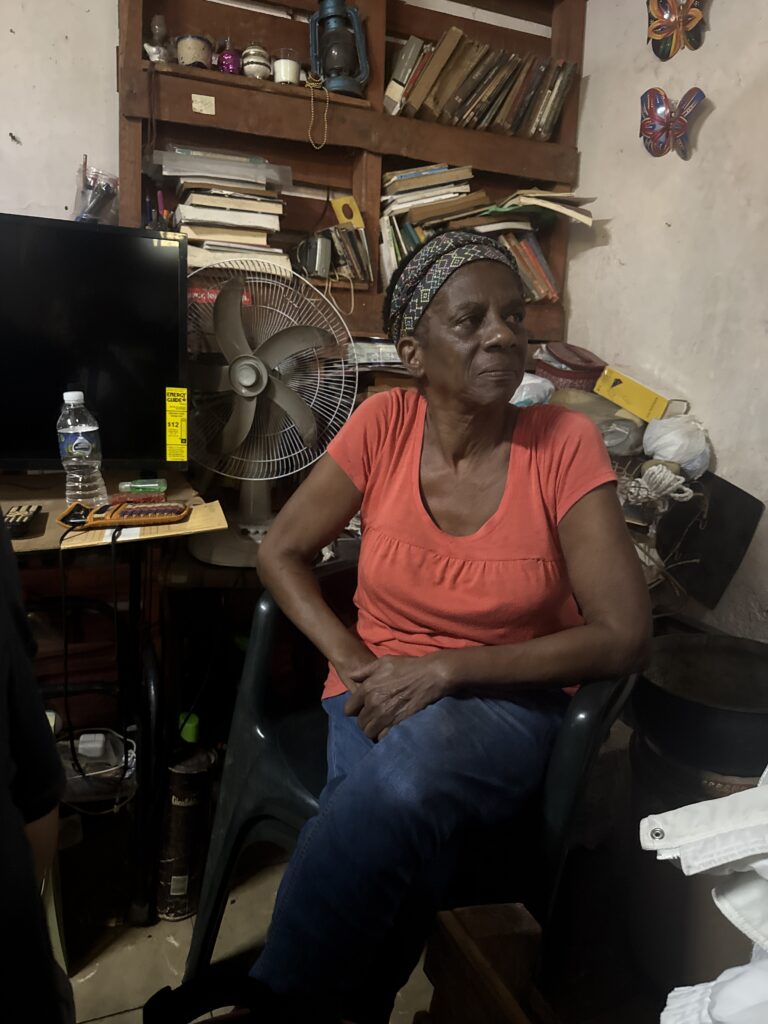HAVANA, CUBA—Hundreds of thousands of Cubans recently swarmed the U.S. Embassy, in Havana, calling for a lift of the embargo that has created a humanitarian crisis where the country has been prevented from buying basics like food or medicine from the United States for more than 60 years.
Reminiscent of Dr. Martin Luther King, Jr., leading the Selma to Montgomery protest in 1965, first secretary of the Central Committee of the Communist Party of Cuba and President of the Republic Miguel Díaz-Canel Bermúdez led his people. He condemned President Joe Biden for continuing the sanctions of his predecessor, Donald Trump, who returns to the White House in January.
“We will demonstrate today, tomorrow and always,” President Díaz-Canel told the crowd, which according to various reports, swelled to 700,000 on Dec. 20.
Cubans eagerly took to the streets to demonstrate against the American blockade that has produced economic hardships, humanitarian concerns, technological limitations, and mental health concerns.
Advertisement

Helen Cairo Madrazo is a retired teacher in Cuba with a meager monthly subsidy. She was a child when the revolution started and has lived her adult life under the American embargo. Her uncle left her a one window space the size of a dorm room that she calls home. She installed a bathroom and an upstairs where she sleeps as well as her adult son.
“Life is very hard because the prices are very high to get the products we need every day,” she told The Final Call. “For example, things we need to cook like oil, rice, sugar, and coffee. The prices are expensive, very, very high because all those products are imported.”
Once upon a time, Cuba produced everything it needed. The embargo prevents that.
“For agriculture we need fertilizer and we can’t buy that. Cuba has to import everything. That’s why agricultural products have very high prices. Production has gone down because the things we need to produce our food, we can’t get,” Ms. Madrazo explained.
The embargo severely restricts Cuba’s ability to trade with the U.S. and other countries, hindering economic growth and development. Foreign investment in this island nation only one hour from Miami is discouraged due to the embargo.
This limits job creation and infrastructure development. Shortages of basic necessities like food and medicine are common due to limited imports.
Sugar used to be Cuba’s number one export. The Soviet Union was a major buyer of Cuban sugar, providing guaranteed prices and subsidies. The collapse of the Soviet Union in 1991 devastated the Cuban economy and left the sugar industry without its primary market.
The U.S. embargo restricts Cuba’s access to international markets and technology, hindering the modernization of the sugar industry. The Cuban government has shifted its focus away from sugar production toward other sectors like tourism and biotechnology.

A map of Cuba. Graphic: cia.gov
Since 1992, the United Nations General Assembly has consistently passed a resolution each year urging the United States to lift its embargo on Cuba. In the most recent vote, the international community overwhelmingly supported this resolution, with 187 nations in favor and only the U.S. and Israel opposing it.
Despite the U.S. government’s claims that its actions against Cuba are intended to “promote human rights” and “democracy,” the sanctions have actually had a detrimental effect on Cuba’s economic and social development, contributing to a humanitarian crisis in the country.
“How long will this go on?” Bruno Rodriguez Parrilla, Cuba’s Minister for Foreign Affairs, asked the Assembly.
“Let Cuba live; let Cuba live in peace,” he said. He called the blockade “a flagrant, massive and systematic violation of the human rights of our people” and “the most encompassing, comprehensive and longest-standing system of unilateral coercive measures ever applied against any country.”
The United States has maintained a trade embargo against Cuba, since 1960, two years after Fidel Castro overthrew the American-supported dictator Fulgencio Batista. The sanctions, which restrict most commercial activities between the two countries, have endured longer than any other trade embargo in recorded history.
In 2019, the United States ramped up its embargo against Cuba by implementing more aggressive economic sanctions. These actions have hindered the supply of fuel and essential components necessary for the upkeep of Cuba’s power infrastructure, including its electrical grid and power plants.
As a result, Cubans have experienced widespread power outages, reduced internet connectivity, and slower online speeds. The equipment required to modernize Cuba’s electrical system remains inaccessible to the country due to these restrictions.
Ms. Madrazo encourages Americans to travel to Cuba.
“You can only understand Cuba when you visit here,” she said. “You will then understand why we are so committed to the revolution. It changed everything for us. The revolution gave us the right to go to school for free. Health care is free too. But things here are very hard.
It’s not the government’s fault things are like this. People love their families, but sanctions are forcing people to leave. Mainly to the USA, but also to Venezuela, Ecuador, Spain, Mexico and even Russia. Even though it’s so cold in Russia and they don’t care.”
This is the second in a series of articles from Final Call coverage of the 2024 International Decade for People of African Descent conference, Cuba and the Cuban people.


